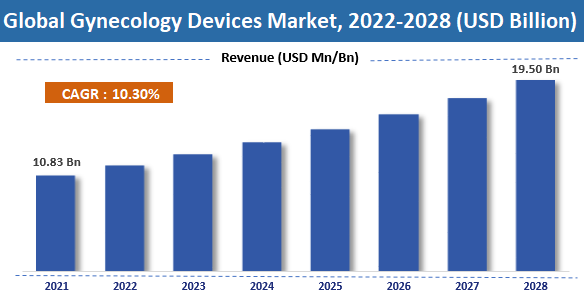Sessions/Tracks
Track 1: Gynecologic Oncology
Gynecologic Oncology specializes in the diagnosis and treatment of cancers affecting the female reproductive system, including ovarian, uterine, cervical, vaginal, and vulvar cancers. Gynecologic oncologists utilize a comprehensive approach that combines surgery, chemotherapy, radiation therapy, and targeted therapies tailored to individual patient needs. This field emphasizes multidisciplinary collaboration with other specialists to optimize treatment outcomes and quality of life for patients. Research efforts focus on advancing treatment options, improving early detection methods, and enhancing supportive care strategies to mitigate treatment side effects. Gynecologic oncologists play a crucial role in advocating for women's health, promoting awareness, and providing compassionate care throughout the cancer journey.
Track 2: Reproductive Endocrinology and Infertility
Reproductive Endocrinology and Infertility is a specialized field focused on diagnosing and managing hormonal disorders impacting fertility in both women and men. It addresses conditions like polycystic ovary syndrome (PCOS), endometriosis, male factor infertility, and ovarian dysfunction. Specialists in this field employ advanced diagnostic techniques, such as hormone testing and imaging, to assess reproductive health and develop personalized treatment plans. Treatments may include medications to regulate hormones, surgical interventions, and assisted reproductive technologies (ART) like in vitro fertilization (IVF) and intrauterine insemination (IUI). The goal is to help individuals and couples achieve successful pregnancies while addressing the underlying hormonal imbalances or reproductive disorders affecting fertility. Ongoing research continues to enhance understanding and improve treatment outcomes in reproductive endocrinology and infertility.
Track 3: Maternal-Fetal Medicine
Maternal-Fetal Medicine (MFM) is a subspecialty of obstetrics that focuses on the management of high-risk pregnancies to ensure the health and well-being of both mother and fetus. MFM specialists are experts in diagnosing and managing complications that may arise during pregnancy, such as gestational diabetes, hypertension, pre-eclampsia, multiple gestations, and fetal anomalies. They employ advanced diagnostic techniques, including ultrasound and genetic testing, to monitor fetal development and detect potential issues early. Treatment strategies range from medical management to fetal intervention procedures performed in utero to optimize outcomes. MFM specialists collaborate closely with obstetricians, neonatologists, genetic counselors, and other healthcare providers to provide comprehensive care that addresses the unique needs and challenges of high-risk pregnancies, aiming to achieve the best possible outcomes for both mother and baby.
Track 4: Obstetric Anesthesia
Obstetric anesthesia specializes in providing safe and effective pain relief during labor, delivery, and postpartum care. It focuses on managing pain while ensuring the safety of both mother and baby. Obstetric anesthesiologists are trained to administer various types of anesthesia, including epidurals, spinal blocks, and general anesthesia when necessary, tailored to the specific needs and preferences of the patient. They play a critical role in managing complications that may arise during childbirth, such as emergency cesarean sections or maternal hypertension. Additionally, obstetric anesthesia includes managing pain and anesthesia-related concerns during prenatal and postpartum periods, contributing to overall maternal comfort and well-being throughout the childbirth experience. The field emphasizes close collaboration with obstetricians and other healthcare providers to ensure comprehensive and personalized care for women during childbirth.
Track 5: Urogynecology and Pelvic Floor Disorders
Urogynecology and Pelvic Floor Disorders focuses on the diagnosis and treatment of conditions affecting the female pelvic organs and pelvic floor muscles, which support the bladder, uterus, vagina, and rectum. Common disorders include urinary incontinence, pelvic organ prolapse, fecal incontinence, and pelvic pain. Specialists in this field, known as urogynecologists, utilize a combination of medical, surgical, and rehabilitative therapies to address these conditions. Treatment options range from pelvic floor exercises and lifestyle modifications to minimally invasive surgeries and reconstructive procedures aimed at restoring pelvic floor function and improving quality of life. Urogynecologists often collaborate with physical therapists, colorectal surgeons, and other specialists to provide comprehensive care tailored to each patient's specific needs and preferences. Ongoing research continues to advance understanding and treatment options in urogynecology and pelvic floor disorders.
Track 6: Prenatal Diagnosis and Screening
Prenatal Diagnosis and Screening involves the evaluation of fetal health and the identification of potential genetic or developmental abnormalities during pregnancy. It utilizes a variety of screening and diagnostic tests, such as ultrasound, maternal serum screening, and non-invasive prenatal testing (NIPT), to assess fetal growth, anatomy, and genetic markers. These tests help identify conditions like Down syndrome, neural tube defects, and chromosomal abnormalities early in pregnancy, allowing for informed decision-making and potential intervention. Prenatal counseling is integral, providing expectant parents with information about test options, potential outcomes, and available support services. Advances in technology continue to enhance the accuracy and scope of prenatal screening, offering expectant families greater peace of mind and opportunities for proactive medical management when necessary.
Track 7: Menopause and Hormone Replacement Therapy
Menopause marks the natural cessation of menstrual cycles and fertility in women, typically occurring around age 50. It is characterized by hormonal changes, notably decreased estrogen and progesterone production, leading to symptoms like hot flashes, mood changes, and vaginal dryness. Hormone Replacement Therapy (HRT) aims to alleviate these symptoms by supplementing hormones, primarily estrogen and sometimes progesterone, to mimic pre-menopausal hormone levels. HRT can be administered orally, transdermally, or vaginally, tailored to individual needs and health considerations. However, risks and benefits must be carefully weighed, as HRT has been associated with increased risks of breast cancer, heart disease, and blood clots in some women. Alternative therapies and lifestyle modifications are also recommended to manage menopausal symptoms effectively and promote long-term health and well-being.
Track 8: Gynecologic Surgery
Gynecologic surgery encompasses a range of surgical procedures aimed at treating conditions affecting the female reproductive system. These procedures can be performed for both benign and malignant conditions, such as ovarian cysts, fibroids, endometriosis, and gynecologic cancers. Advances in technology have led to minimally invasive techniques like laparoscopy and robotic-assisted surgery, which offer faster recovery times, reduced pain, and smaller incisions compared to traditional open surgery. Depending on the specific condition and patient factors, surgical options may include hysterectomy, myomectomy, ovarian cystectomy, and surgical staging for cancers. Gynecologic surgeons work closely with multidisciplinary teams to ensure comprehensive preoperative evaluation, personalized surgical planning, and postoperative care aimed at optimizing outcomes and promoting women's health and quality of life.
Track 9: Sexual and Reproductive Health
Sexual and reproductive health encompasses a broad spectrum of issues related to sexual activity, fertility, contraception, and reproductive choices throughout a person's life. It includes comprehensive care that addresses both physical and psychological aspects of sexual health, promoting well-being and preventing reproductive health problems. Services often include education on contraception methods, sexually transmitted infection (STI) prevention and treatment, infertility evaluation and treatment options, and counseling on sexual dysfunction and intimacy concerns. Providers in this field aim to empower individuals to make informed decisions about their sexual and reproductive health, offering confidential and non-judgmental care. Additionally, sexual and reproductive health services advocate for reproductive rights and access to healthcare services that support individuals in achieving their reproductive goals while maintaining optimal health and wellness.
Track 10: Contraception and Family Planning
Contraception and family planning encompass a range of methods and services designed to help individuals and couples achieve their desired reproductive goals. This includes education, counseling, and access to various contraceptive options tailored to meet diverse needs and preferences. Methods range from hormonal contraceptives like birth control pills and patches to long-acting reversible contraceptives (LARCs) such as intrauterine devices (IUDs) and implants. Barrier methods like condoms and fertility awareness methods are also available. Family planning services provide comprehensive reproductive healthcare, offering preconception counseling, fertility assessments, and support for pregnancy spacing and prevention. By promoting access to effective contraception and family planning services, providers aim to empower individuals to make informed decisions about their reproductive health, thereby supporting healthier pregnancies, reducing unintended pregnancies, and improving overall maternal and child health outcomes.
Track 11: Adolescent Gynecology
Adolescent gynecology focuses on the unique reproductive health needs of young women during adolescence, typically from puberty through their teenage years. It addresses a range of gynecological issues specific to this age group, including menstrual irregularities, pelvic pain, contraception counseling, sexually transmitted infections (STIs), and reproductive health education. Providers in adolescent gynecology strive to create a comfortable and supportive environment for teenagers to discuss sensitive topics and receive confidential care. They emphasize education on puberty, menstrual hygiene, safe sexual practices, and the importance of regular gynecological exams. By promoting early intervention, education, and access to reproductive health services, adolescent gynecology plays a crucial role in empowering young women to make informed decisions about their health and well-being as they transition into adulthood.
Track 12: Minimally Invasive Gynecologic Surgery
Minimally Invasive Gynecologic Surgery (MIGS) utilizes advanced surgical techniques to perform procedures with smaller incisions compared to traditional open surgery. This approach includes laparoscopic and robotic-assisted methods, which offer benefits such as reduced pain, shorter hospital stays, faster recovery times, and lower risk of complications. MIGS is used to treat various gynecological conditions, including fibroids, endometriosis, ovarian cysts, and uterine conditions like adenomyosis. Procedures range from hysterectomy and myomectomy to fertility-preserving surgeries and treatment of pelvic organ prolapse. Gynecologic surgeons trained in MIGS use specialized instruments and high-definition cameras to perform precise surgeries with minimal disruption to surrounding tissues. Patients often experience quicker return to daily activities and improved cosmetic outcomes compared to traditional surgery, making MIGS a preferred choice for many women seeking surgical treatment for gynecological conditions.
Track 13: Endometriosis and Fibroids
Endometriosis and fibroids are common gynecological conditions that can cause significant discomfort and affect fertility in women. Endometriosis involves the growth of tissue similar to the lining of the uterus outside the uterus, leading to pelvic pain, painful periods, and sometimes infertility. Treatment options range from pain management with medications to surgical interventions like laparoscopic excision to remove endometrial implants.
Fibroids, or uterine leiomyomas, are non-cancerous growths in the uterus that can cause heavy menstrual bleeding, pelvic pressure, and pain. Treatment depends on the size and location of fibroids, with options ranging from medications to shrink fibroids to surgical procedures such as myomectomy to remove them. Minimally invasive techniques like laparoscopic or robotic-assisted surgery are often preferred for both conditions, offering quicker recovery times and reduced postoperative discomfort compared to traditional open surgery.
Track 14: Infectious Diseases in Obstetrics and Gynecology
Infectious Diseases in Obstetrics and Gynecology focuses on the prevention, diagnosis, and treatment of infections that affect women's reproductive health. This includes sexually transmitted infections (STIs) such as chlamydia, gonorrhea, and human papillomavirus (HPV), as well as infections of the reproductive organs like pelvic inflammatory disease (PID) and vaginal infections. Specialists in this field employ a range of diagnostic tools, including laboratory testing and imaging, to identify infections accurately. Treatment approaches vary depending on the specific infection but often include antibiotics, antiviral medications, and other supportive therapies. Prevention strategies include vaccination against HPV, safe sexual practices, and regular screenings. Infectious Diseases in Obstetrics and Gynecology plays a crucial role in promoting women's health by addressing infection-related complications and reducing the spread of communicable diseases in reproductive healthcare settings.
Track 15: Perinatal and Neonatal Care
Perinatal and neonatal care focuses on the health and well-being of both mother and baby during the perinatal period, encompassing pregnancy, childbirth, and the immediate postpartum period, as well as the care of newborns in the neonatal period. This specialty involves monitoring maternal health, fetal development, and preparing for labor and delivery. Perinatal care emphasizes prenatal screenings, genetic counseling, and managing high-risk pregnancies to optimize maternal and fetal outcomes. Neonatal care involves providing specialized medical attention to newborns, particularly those born prematurely or with medical conditions requiring intensive care. Neonatologists and perinatologists collaborate closely with obstetricians, pediatricians, and other healthcare providers to provide comprehensive care that addresses the unique needs of both mothers and babies, ensuring a healthy start to life and ongoing support during the critical early stages of development.
Track 16: Gynecologic Pathology
Gynecologic pathology is a branch of pathology that focuses on the study and diagnosis of diseases affecting the female reproductive system. Pathologists specializing in this field analyze tissue samples obtained from biopsies, surgical procedures, or cytology tests to identify and classify various conditions. This includes cancers such as cervical, ovarian, uterine, and vulvar cancers, as well as benign conditions like fibroids, endometriosis, and ovarian cysts. Accurate diagnosis by gynecologic pathologists is crucial for guiding treatment decisions and predicting patient outcomes. Advances in molecular pathology have enhanced diagnostic precision, allowing for personalized medicine approaches and targeted therapies based on the specific molecular characteristics of tumors. Gynecologic pathologists play a critical role in multidisciplinary teams, collaborating with oncologists, surgeons, and other specialists to ensure comprehensive and accurate pathology evaluation in the management of gynecologic diseases.
Track 17: Genetics in Gynecology and Obstetrics
Genetics in Gynecology and Obstetrics explores the role of genetic factors in reproductive health, pregnancy outcomes, and inherited conditions. This field encompasses genetic counseling, testing, and personalized risk assessment for women and couples planning pregnancies. Genetic counselors work closely with obstetricians and gynecologists to identify genetic risks, such as chromosomal abnormalities, inherited disorders like cystic fibrosis or sickle cell disease, and conditions with familial predispositions, such as breast and ovarian cancers. Genetic testing methods, including carrier screening and prenatal genetic testing, help inform reproductive decisions and facilitate early intervention when necessary. Advances in genomic medicine continue to expand the understanding of genetic contributions to reproductive health, enabling tailored care plans that optimize outcomes for both mothers and babies while addressing familial health concerns comprehensively.
Track 18: Imaging in Gynecology and Obstetrics
Imaging in Gynecology and Obstetrics plays a crucial role in the diagnosis, monitoring, and management of conditions affecting the female reproductive system and pregnancies. It encompasses a variety of imaging modalities, including ultrasound, magnetic resonance imaging (MRI), computed tomography (CT), and occasionally, X-rays. These imaging techniques are used to evaluate pelvic anatomy, detect abnormalities such as ovarian cysts, fibroids, and pelvic masses, and monitor fetal development during pregnancy. Doppler ultrasound is utilized to assess blood flow in the pelvic organs and fetus. Imaging in obstetrics also aids in assessing fetal growth, placental health, and detecting anomalies that may impact pregnancy outcomes. Advances in technology, such as 3D and 4D ultrasound, enhance visualization and diagnostic accuracy, supporting obstetricians and gynecologists in providing timely and precise medical care tailored to each patient's needs.
Track 19: Breast Health and Diseases
Breast Health and Diseases focuses on the prevention, early detection, and management of conditions affecting the breast. This includes both benign conditions like fibroadenomas and cysts, as well as breast cancer, which is the most common cancer among women worldwide. Breast health initiatives emphasize regular breast self-exams, clinical breast exams, and mammography screening to detect abnormalities early when treatment outcomes are most favorable. Diagnostic techniques such as ultrasound and MRI complement mammography in evaluating breast lesions and guiding biopsy procedures when necessary. Treatment approaches for breast diseases range from surveillance and hormonal therapies for benign conditions to surgery, chemotherapy, radiation therapy, and targeted therapies for breast cancer. Multidisciplinary care involving breast surgeons, oncologists, radiologists, and pathologists ensures comprehensive evaluation and personalized treatment plans to optimize breast health and quality of life for patients.
Track 20: Patient Safety and Quality in Gynecology and Obstetrics
Patient Safety and Quality in Gynecology and Obstetrics focuses on improving healthcare outcomes and reducing medical errors within the field. It encompasses initiatives aimed at enhancing the safety, effectiveness, and patient-centeredness of care provided to women throughout their reproductive health journey. This includes implementing evidence-based practices, standardizing protocols for procedures and treatments, and promoting continuous quality improvement through monitoring and feedback mechanisms. Patient safety measures in obstetrics address complications during pregnancy, labor, and delivery, while gynecologic care focuses on minimizing risks associated with surgeries, medications, and diagnostic procedures. By prioritizing patient safety and quality of care, healthcare providers in gynecology and obstetrics strive to ensure positive outcomes for both mothers and babies, while fostering trust and confidence among patients and their families.












